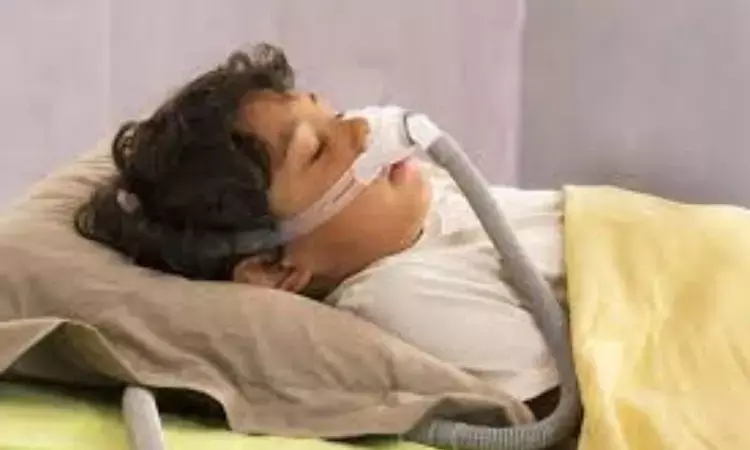- Home
- Medical news & Guidelines
- Anesthesiology
- Cardiology and CTVS
- Critical Care
- Dentistry
- Dermatology
- Diabetes and Endocrinology
- ENT
- Gastroenterology
- Medicine
- Nephrology
- Neurology
- Obstretics-Gynaecology
- Oncology
- Ophthalmology
- Orthopaedics
- Pediatrics-Neonatology
- Psychiatry
- Pulmonology
- Radiology
- Surgery
- Urology
- Laboratory Medicine
- Diet
- Nursing
- Paramedical
- Physiotherapy
- Health news
- Fact Check
- Bone Health Fact Check
- Brain Health Fact Check
- Cancer Related Fact Check
- Child Care Fact Check
- Dental and oral health fact check
- Diabetes and metabolic health fact check
- Diet and Nutrition Fact Check
- Eye and ENT Care Fact Check
- Fitness fact check
- Gut health fact check
- Heart health fact check
- Kidney health fact check
- Medical education fact check
- Men's health fact check
- Respiratory fact check
- Skin and hair care fact check
- Vaccine and Immunization fact check
- Women's health fact check
- AYUSH
- State News
- Andaman and Nicobar Islands
- Andhra Pradesh
- Arunachal Pradesh
- Assam
- Bihar
- Chandigarh
- Chattisgarh
- Dadra and Nagar Haveli
- Daman and Diu
- Delhi
- Goa
- Gujarat
- Haryana
- Himachal Pradesh
- Jammu & Kashmir
- Jharkhand
- Karnataka
- Kerala
- Ladakh
- Lakshadweep
- Madhya Pradesh
- Maharashtra
- Manipur
- Meghalaya
- Mizoram
- Nagaland
- Odisha
- Puducherry
- Punjab
- Rajasthan
- Sikkim
- Tamil Nadu
- Telangana
- Tripura
- Uttar Pradesh
- Uttrakhand
- West Bengal
- Medical Education
- Industry
Tubeless anesthesia effective for Children undergoing surgery for recurrent respiratory papillomatosis

The effectiveness of tubeless anesthesia with transnasal humidified rapid insufflation ventilatory exchange (THRIVE) has not been well established, particularly in young patients. In a recently published research, the efficacy of Transnasal Humidified Rapid Insufflation Ventilatory Exchange (THRIVE) was analyzed in children having surgery for Juvenile Onset Recurrent Respiratory Papillomatosis (JORRP). The following are the important findings :
1. The research included a cohort of 28 children, ranging in age from 2 to 12 years, who were diagnosed with juvenile-onset recurrent respiratory papillomatosis (JORRP) and exhibited aberrant airway conditions. These participants were classified according to the ASA physical status II-III.
2. Interventions: Each participant was subjected to two interventions, which were administered in a random sequence with a 5-minute interval between them. The first intervention included the cessation of breathing without the administration of supplemental oxygen, while the subsequent intervention involved the cessation of breathing with the implementation of Transnasal Humidified Rapid-Insufflation Ventilatory Exchange (THRIVE).
3. The major outcome assessed in this study was the length of apnea, which was defined as the time interval between extubation and the subsequent reintubation, together with the restart of regulated breathing.
4. Findings: The research revealed a statistically significant increase in the median duration of apnea throughout the THRIVE intervention as compared to the control period. The use of the THRIVE intervention yielded a significantly extended duration of apnea.
5. Secondary objectives included the assessment of the rate of transcutaneous carbon dioxide (Tcco2) elevation, the nadir of pulse oxygen saturation (Spo2) during apnea, and the incidence of unforeseen adverse events.
6. The research revealed that there was a larger rate of carbon dioxide (CO2) growth during the control period in comparison to the THRIVE period for both age cohorts, namely children aged 2 to 5 years and 6 to 12 years. This finding suggests that the use of the THRIVE technique contributed to the mitigation of elevated levels of carbon dioxide accumulation during episodes of apnea.
7. The study found that the lowest pulse oxygen saturation (Spo2) was considerably greater during the THRIVE period in comparison to the control period, suggesting improved oxygenation assistance during apnea.
8. In summary, the findings of this research indicate that the use of THRIVE may be considered a safe method to prolong apnea duration in pediatric patients with JORRP who are having surgery. Furthermore, it has been shown that THRIVE is beneficial in reducing the pace at which carbon dioxide levels rise during the procedure. Consequently, the research proposes THRIVE as a therapeutically feasible method for managing the airway during tubeless anesthesia in apneic pediatric patients.
The present study offers empirical support for the use of the THRIVE technique as an advantageous strategy in the management of airway conditions in pediatric patients diagnosed with juvenile-onset recurrent respiratory papillomatosis (JORRP) during surgical procedures. This method demonstrates enhanced safety measures and facilitates the prolongation of apnea intervals.
Reference-
Lei, Guiyu MD*; Wu, Lili MD*; Xi, Chunhua MD, PhD*; Xiao, Yang MD, PhD†; Wang, Guyan MD, PhD*. Transnasal Humidified Rapid Insufflation Ventilatory Exchange Augments Oxygenation in Children With Juvenile Onset Recurrent Respiratory Papillomatosis During Surgery: A Prospective Randomized Crossover Controlled Trial. Anesthesia & Analgesia 137(3):p 578-586, September 2023. | DOI: 10.1213/ANE.0000000000006521
MBBS, MD (Anaesthesiology), FNB (Cardiac Anaesthesiology)
Dr Monish Raut is a practicing Cardiac Anesthesiologist. He completed his MBBS at Government Medical College, Nagpur, and pursued his MD in Anesthesiology at BJ Medical College, Pune. Further specializing in Cardiac Anesthesiology, Dr Raut earned his FNB in Cardiac Anesthesiology from Sir Ganga Ram Hospital, Delhi.
Dr Kamal Kant Kohli-MBBS, DTCD- a chest specialist with more than 30 years of practice and a flair for writing clinical articles, Dr Kamal Kant Kohli joined Medical Dialogues as a Chief Editor of Medical News. Besides writing articles, as an editor, he proofreads and verifies all the medical content published on Medical Dialogues including those coming from journals, studies,medical conferences,guidelines etc. Email: drkohli@medicaldialogues.in. Contact no. 011-43720751


